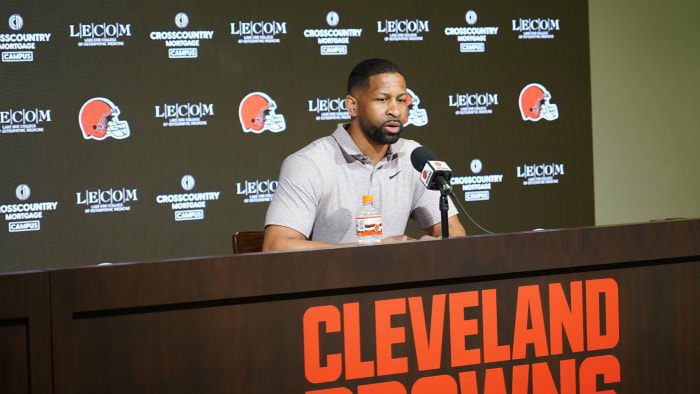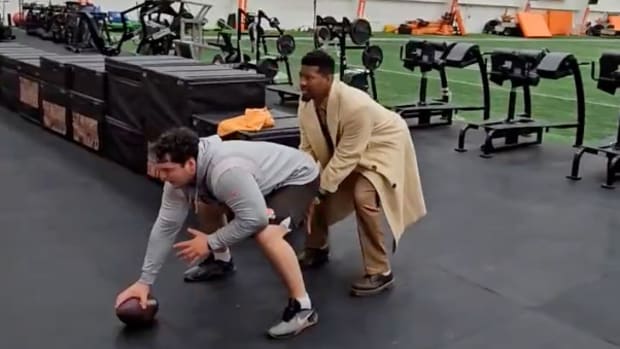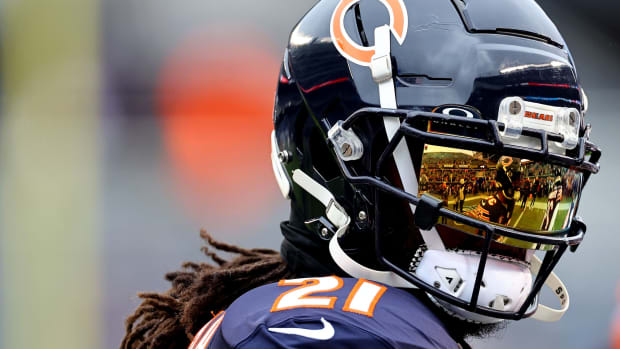Does A More Active Transfer Portal Impact Browns Pre-Draft Evaluations?
General manager Andrew Berry explained how the current climate of college football impacts how the Browns evaluate players.
College Football has changed drastically over the last few years.
The NIL era has created a space where players have the power and if one situation isn't a good fit, they can seek refuge – and NIL financial compensation – elsewhere thanks to two seperate transfer portal windows. It's created this world where players sometimes find themselves bouncing around to multiple teams before they reach the NFL.
What used to be seen a somewhat of a red flag by league executives like Browns general manager Andrew Berry, has now become normalized.
"Transfers were so rare in college football that you really wanted to dig in on why a player was changing schools," Berry said. "Honestly, most of the times, it ended up being some type of disciplinary issue or something along those lines. So it was something that you would really kind of alert and make sure you had your arms fully around why the player switched schools. And now it's just not that way at all. It is almost like, oh wow, this guy didn't transfer."
While college football fans debate whether or not the transfer portal is killing the sport, Berry isn't here to say one way or another if it's a good thing or a bad thing. He's only interested in what it means from his vantage point, as the man responsible for building the Browns roster.
As he gears up for his fifth NFL draft since coming to Cleveland, Berry sees at least one massive advantage in the increased usage of the transfer portal.
"To be honest, it's actually a little bit more helpful," said Berry. "You can get the perspective on the person in two totally different environments from, let's say, two or three different staffs. So I actually think that's more helpful in understanding the person than anything."
There's another part of the equation when it comes to transfer portal players. Some believe jumping from team-to-team could impact their development. While conceding that the transfer portal is still a somewhat newer phenomenon, Berry hasn't seen anything to suggest that theory is true.
"I actually don't think it'll have too big of an effect. I think typically when individuals transfer, they're going to a better situation or a situation that more closely aligns with their strengths," Berry said. Look, five years from now I could say I was completely wrong, but my guess would be that it doesn't have a major impact on the development of guys coming out."
Time will tell how the changing tides of college football will impact players headed to the next level and how teams evaluate those players. Berry and his staff have found the nuances in evaluating college payers in the NIL age. Now they'll put their findings to the test in next week's NFL Draft.




